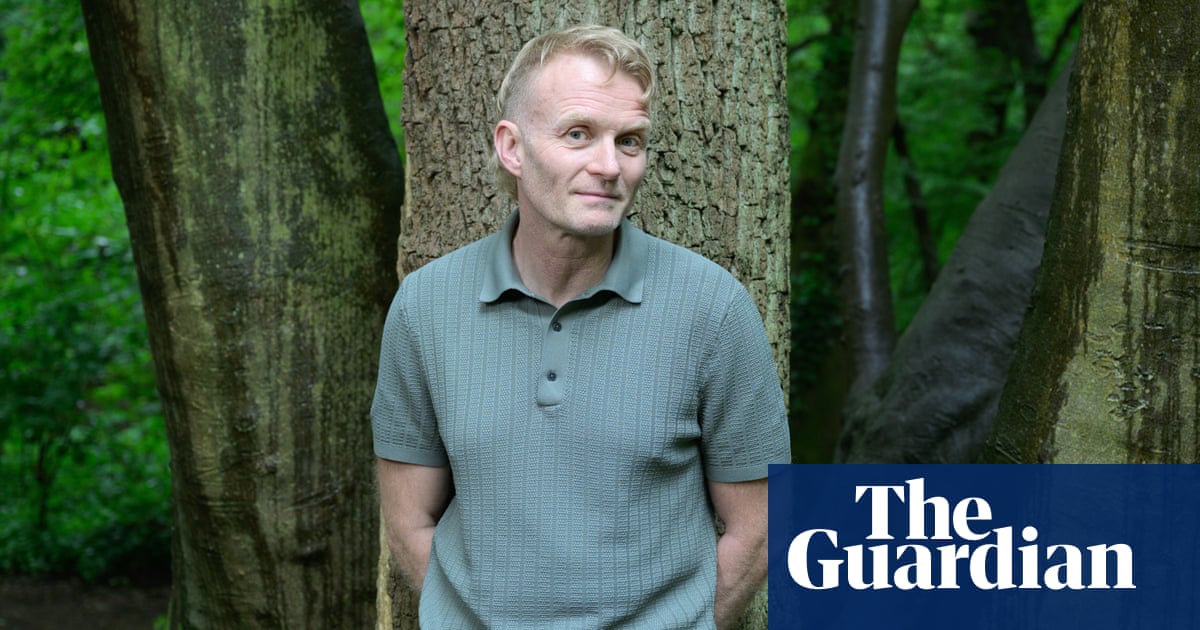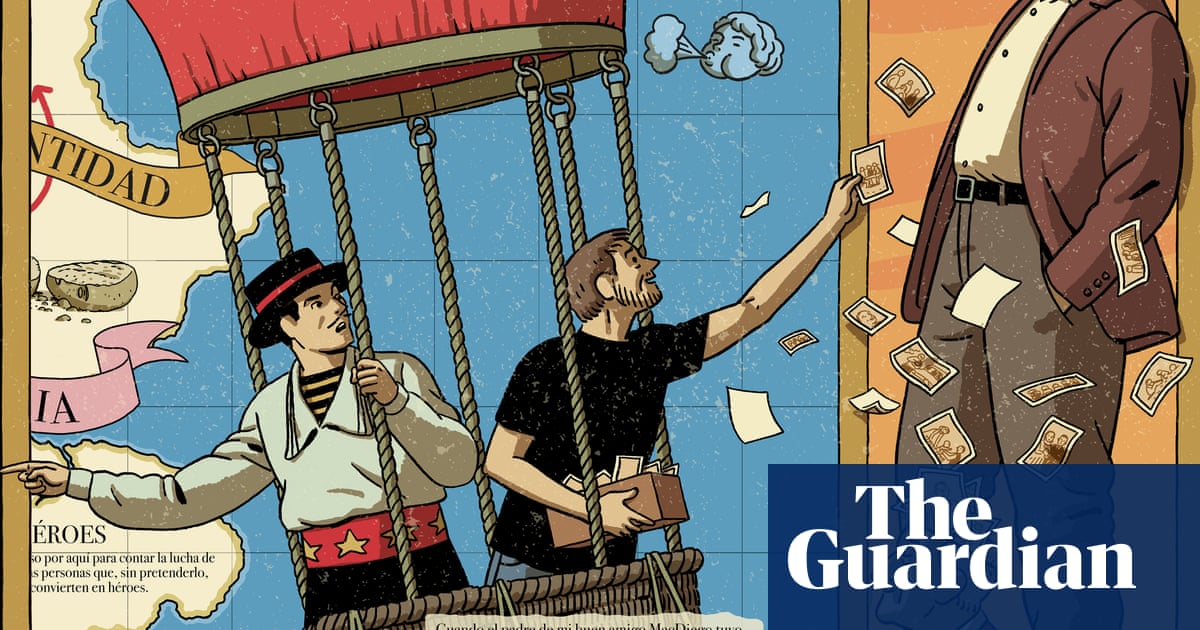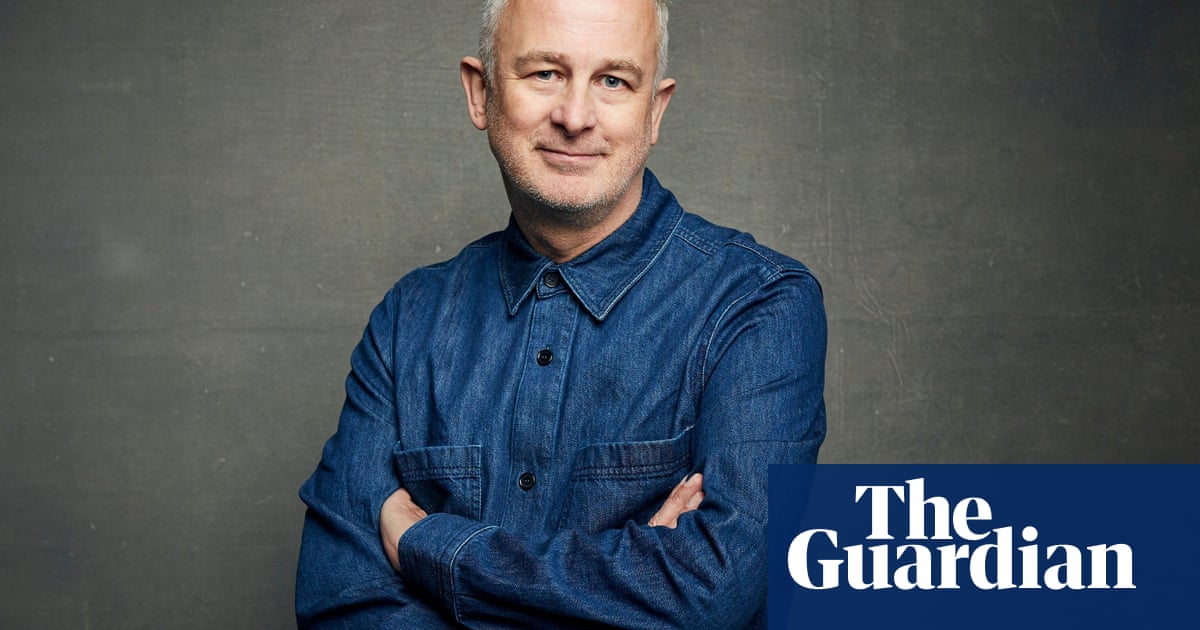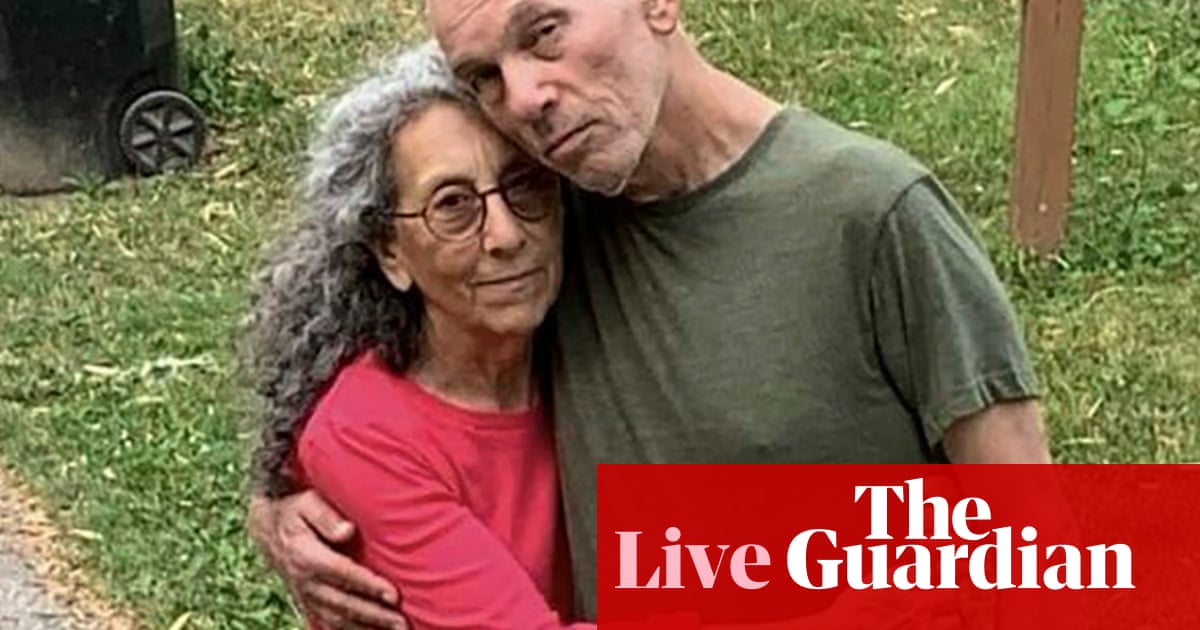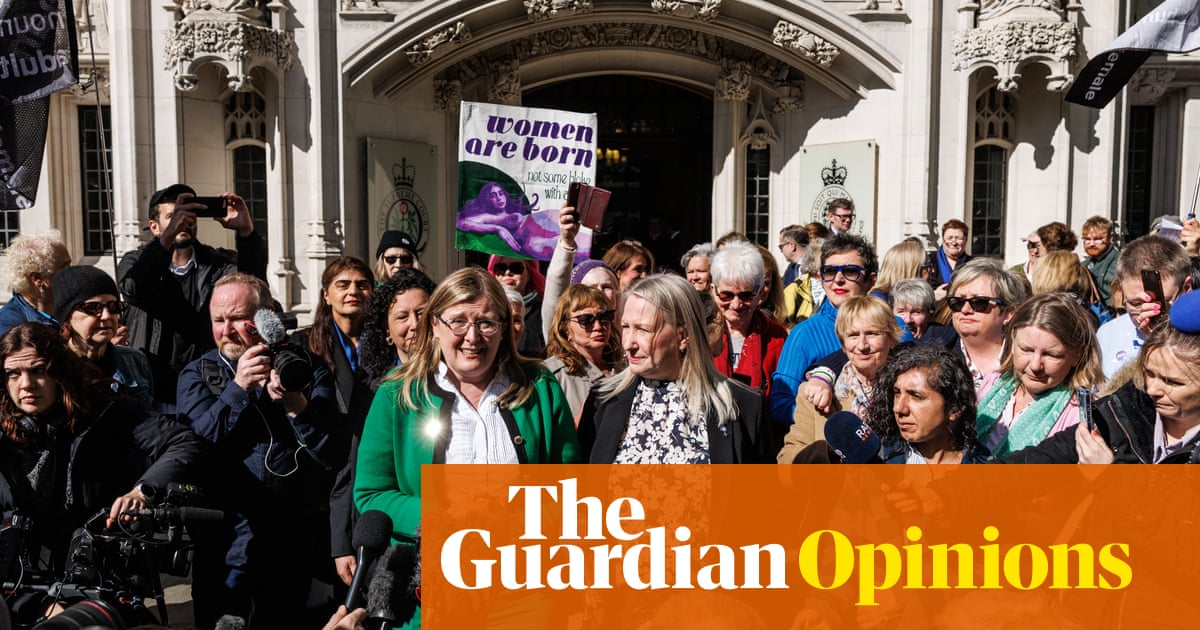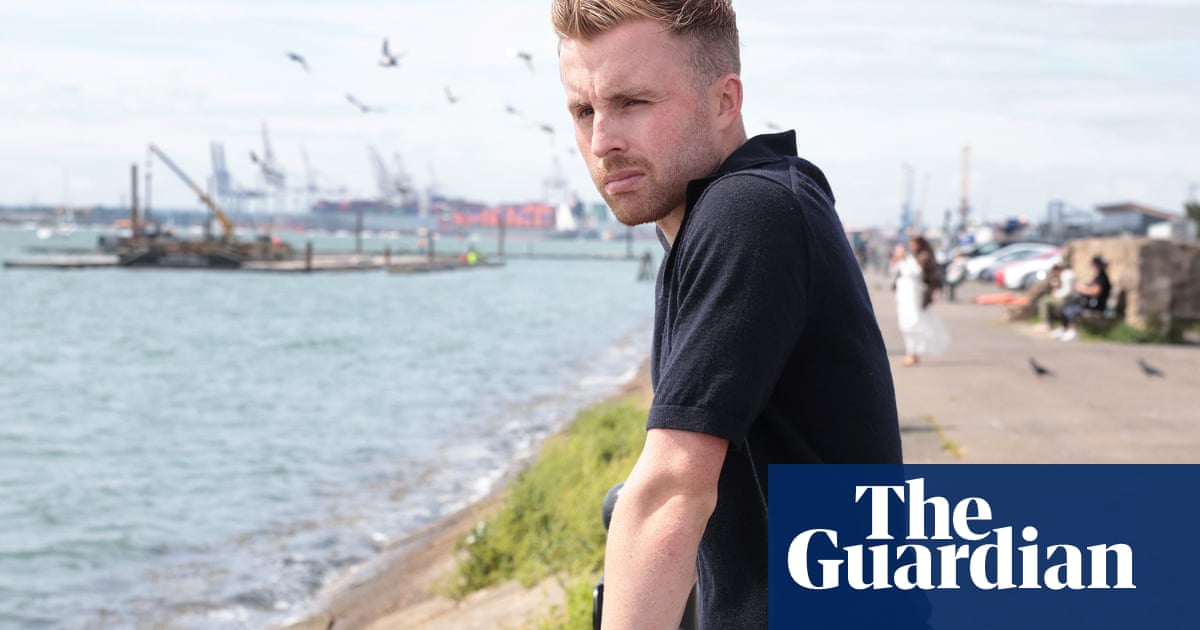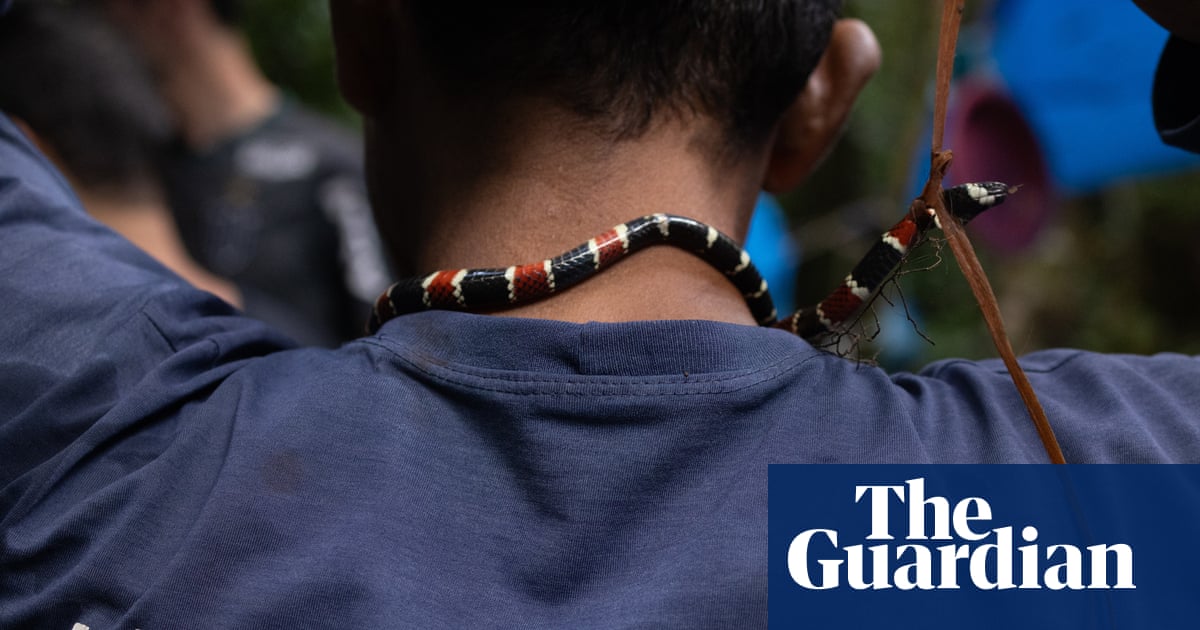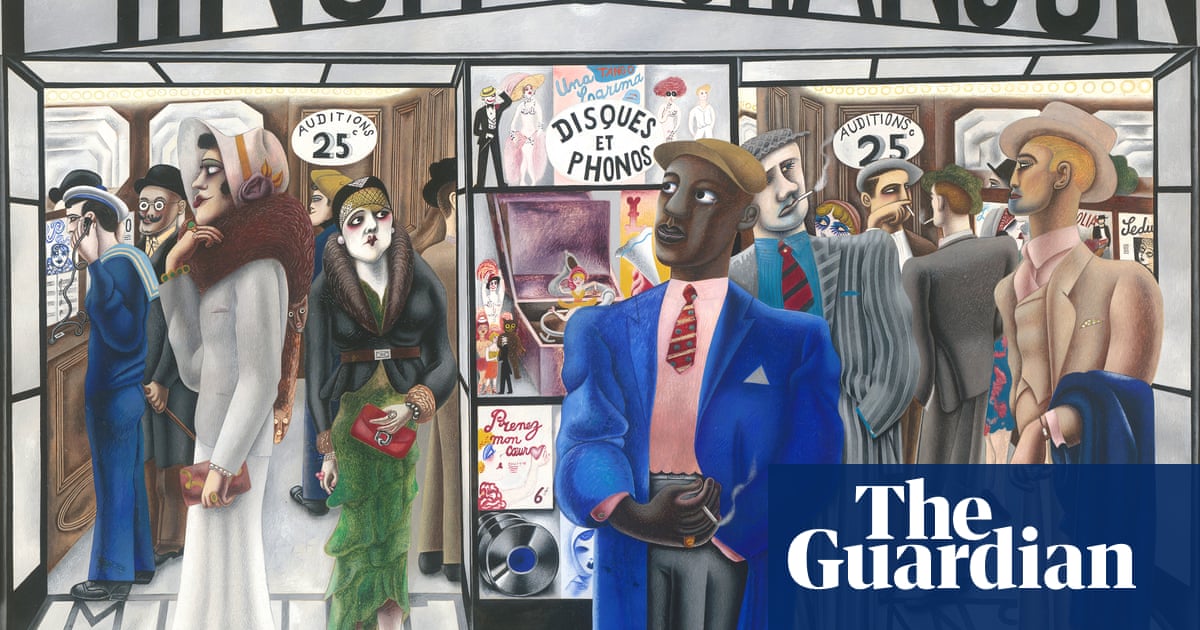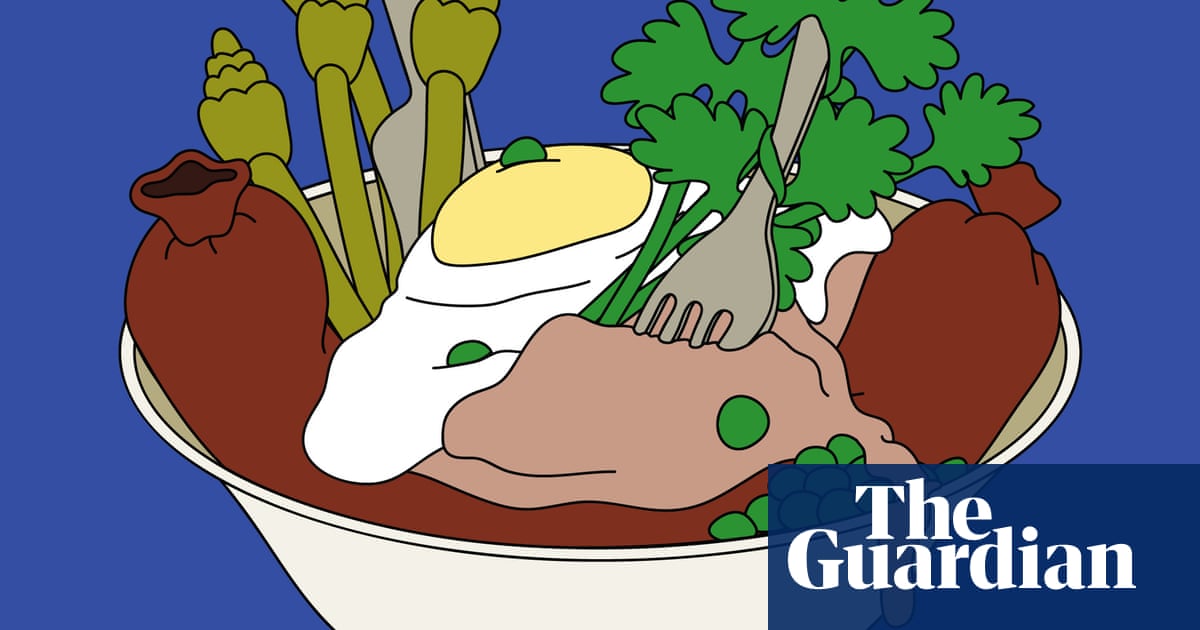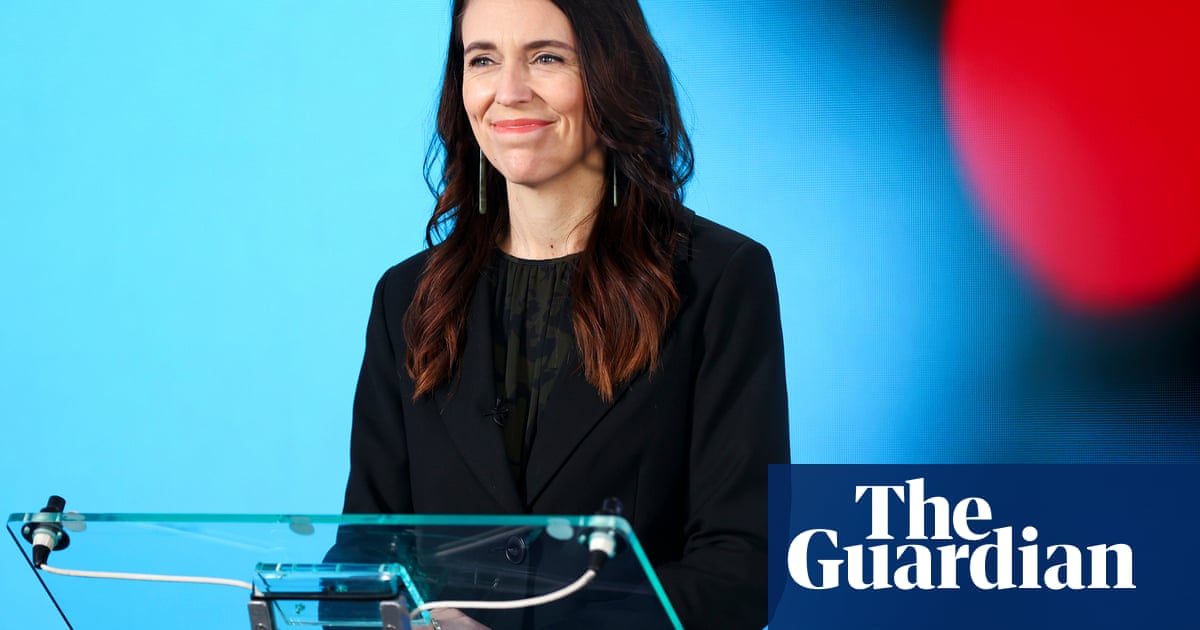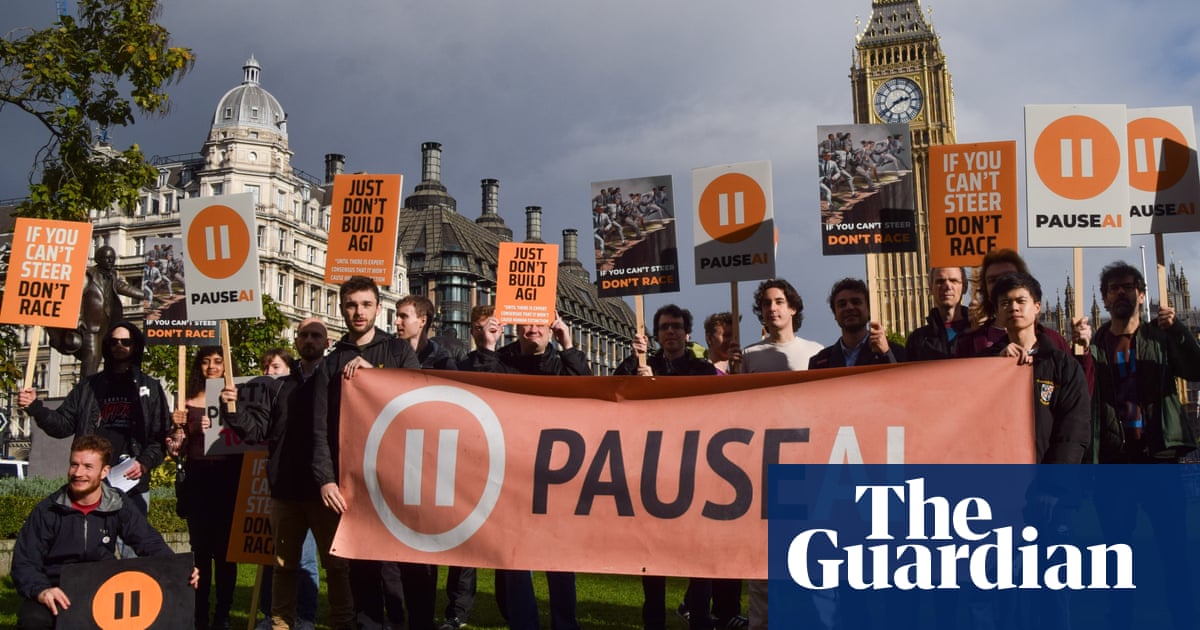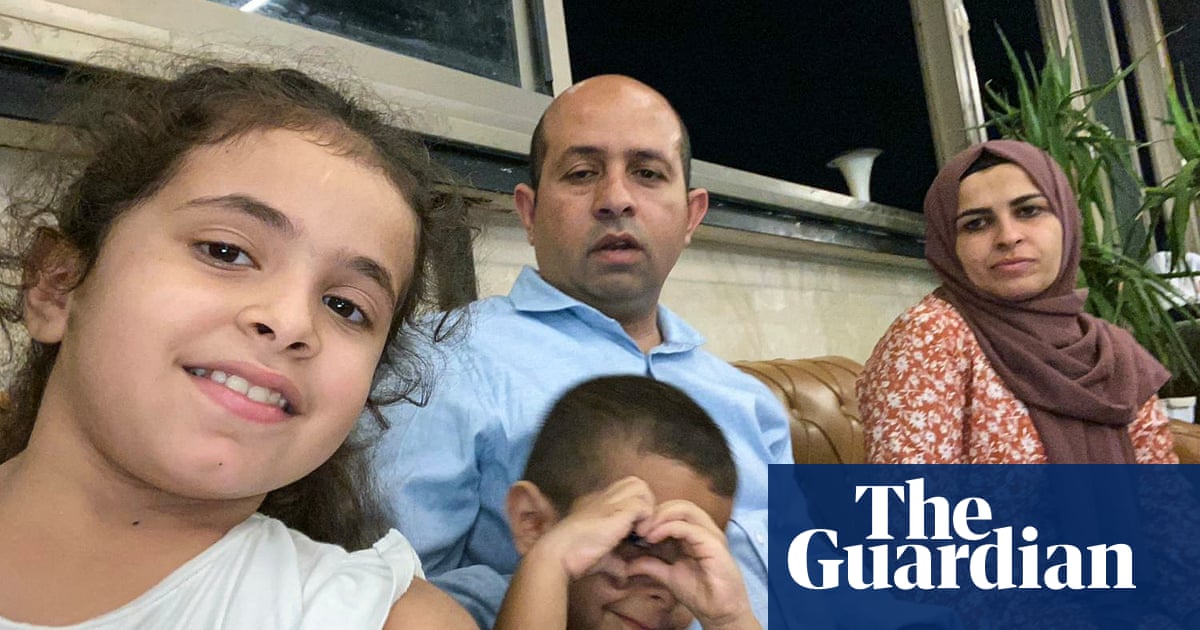Laila Soueif, lying shrunken on a hospital bed at St Thomas’ hospital in London on the 247th day of her hunger strike in pursuit of freedom for her son, imprisoned British-Egyptian activist Alaa Abd el-Fattah, is locked in what may prove to be her last of many trials of strength with Egypt’s authoritarian regime.
A remarkable, witty and courageous woman, she has the self-awareness to admit: “I may have made a mistake, God knows,” but she will not back down, and anyone looking back at her rich life has little evidence to doubt her perseverance.
Speaking from the hospital on Tuesday, Soueif said: “My message is: use my death as leverage to get Alaa out. Don’t let my death be in vain.”
Soueif told the BBC: “It’s something that I passionately don’t want to happen. Children want a mother, not a notorious mother – whether the notoriety is good or bad – but if that’s what it takes to get Alaa out of jail and to get all my children and grandchildren’s lives back on track, then that’s what I’m going to do.”
Fattah was arrested in September 2019, and sentenced in December 2021 to five years in jail for “spreading false news and harming Egypt’s national interest”. A UN panel concluded Egypt was illegally detaining him.
Soueif described her eventful life to the Guardian. Born in Britain in 1956, where she lived until she was two, she comes from an academic family. Her father, Mostafa Soueif, was the founder of Cairo University’s psychology department and founder of Egypt’s Academy of Arts.
Her mother, Fatma Moussa, was a professor of English literature at Cairo University, an accomplished translator of Shakespeare and Naguib Mahfouz, the Egyptian Nobel prize-winning novelist. Her sister Ahdaf is a distinguished novelist and essayist.
Her parentage gifted her a love of literature. At the age of 11, bed-ridden from typhoid, she was given a copy of War and Peace to keep her quiet and now even in hospital a novel has always been on her bed.
She said she was also raised on Jane Austen, so is “partial to texts in which every word is considered and nothing is superfluous”. She also developed a love of maths, telling her father at the age of eight that she loved “solving maths puzzles, and it did not seem like school work”. She went on to become an assistant professor of maths at Cairo University.
She spent her adolescence on Brazil Street in Zamalek, an affluent district in Cairo where like any other neighbourhood there was a band of rebellious teenagers. “I loved riding motorcycles with the boys and had fleeting romances, but I steered clear of drugs. I never hid anything from my parents either. I’d even take my romantic calls on the house phone,” she recalled.
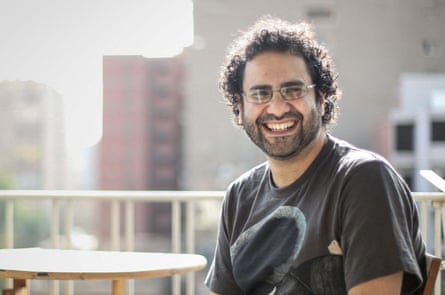
She said her sister Ahdaf “was always the polished, captivating mademoiselle – five boys would be infatuated with her at the same time. She was the older sister everyone admired. Meanwhile, I was the punk, trying everything out. Our parents never wanted us to be replicas of each other, or of them.”
Politics was always part of the household and a pivotal moment came in 1967 when Israel defeated Egypt in the six-day war. It was a political awakening. She said: “People who’d always remained silent spoke out. I remember seeing family friends who had been close to the regime, officers in the army, sitting in our living room, weeping: ‘We betrayed the country! We lost it.’”
She recalled her first student protest in high school in the early 1970s, when demonstrations were erupting across campuses calling for an uprising against the Israeli occupation of Sinai. “I remember watching students march from everywhere, even Zamalek, to Tahrir Square. A student friend and I joined, thrilled.”
She met her husband, Ahmed Seif el-Islam, and the father of Alaa, at Cairo University. She was doing an MA in algebra and he was a member of a secretive group called Al-Matraqa that had split away from the Egyptian Communist party, disillusioned by the party’s reformism.
Laila had inherited from her parents a cynical attitude towards any party organisation, but she loved Seif for his mind and his sincerity.
Alaa was born in 1981. In 1983, her husband was arrested and tortured. A year later she was given the chance to undertake a PhD at Poitiers University in France, taking her son with her, but returned to Cairo for a year after her husband was arrested in 1983. He was found guilty of illegal weapons possession, and sentenced to five years in jail. On bail, he went into hiding with his wife and young son for three months only to decide that life as a fugitive was impossible and so gave himself up. In jail he was again tortured.
While in prison he received a BA in law and within a month of leaving jail was admitted to the bar. He became one of the most effective human rights lawyers in Egypt.
It was in France that Laila formed a deep emotional bond with Alaa, but started to learn the sacrifice involved in political activism. She said: “The fact that Seif was in prison when Alaa was very young created a very special relationship between us.
“I had to explain things that you should never have to explain to a child – why his father was in prison, that there are bad police and good police – the good ones, who catch thieves and organise traffic, and the bad ones, who arrest people who oppose the government.
“You don’t usually need to know these things when you’re four or five.”
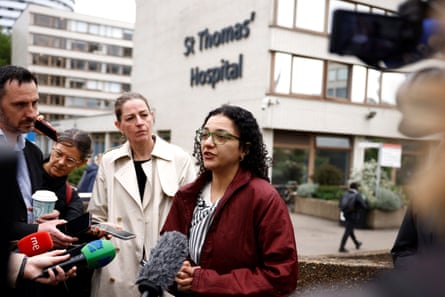
Later her admiration for Alaa’s ability to look after his two younger sisters comforted her in continuing a teaching career.
On returning to Cairo full-time, she helped found the March 9 movement in 2004, an organisation dedicated to academic autonomy and removing the state from universities. Her reputation as someone who would confront the police in protests became legendary. She was often the last to leave.
Although she participated in the demonstrations in Tahrir Square in 2011, she like many had not anticipated the scale of the popular movement that would bring about the fall of Egypt’s then president, Hosni Mubarak. By then she was the matriarch of three human rights activists. Sanaa, the youngest of the three and then 18, joined their activism during the Mohamed Mahmoud street clashes in 2011 that resulted in more than 40 being killed.
A week before Mubarak’s fall in February 2011, Soueif’s husband was arrested in his office and later interrogated in prison by Abdel Fatah al-Sisi, then head of military intelligence, and now president. In an exchange with Sisi, Seif el-Islam unusually answered him back, describing Mubarak as corrupt.
Seif el-Islam later told the Guardian that Sisi “became angry, his face became red. He acted as if every citizen would accept his point and no one would reject it in public. When he was rejected in public, he lost it.” The episode is sometimes cited as one reason Sisi seems so determined to keep Alaa in jail.
The revolution, in the hands of the Muslim Brotherhood, imploded. Soueif said: “We couldn’t believe that the most prepared organisation for governance wasted itself on eliminating the opposition as its first task, instead of achieving tangible accomplishments on the ground. Even the religious current in Iran, when it took power, implemented some social and economic achievements for the masses before it became a dictatorship. But for the MB to start by fighting the opposition in the streets – how did they think that would work?”
With the collapse of the revolution and the capture of power by the military, the family suffered. In June 2014 Alaa was first arrested for violating protest laws and then in October Sanaa, the middle daughter, then aged 20, was convicted of a similar offence and jailed for three years. She had two spells in jail. At the time Soueif and her other daughter Mona went on a hunger strike lasting 76 days.
When her husband died aged 63 in August 2014, two of his children were in jail, and were barred from seeing him in hospital. Alaa spoke movingly at his father’s funeral.
Since then Soueif’s life has been one long attempt to secure his release and ensure his life in prison is bearable.
She was once asked during the hunger strike whether what she was doing frightened her. “My mind is aware that I am doing something different, but my feeling as a mother is that this is normal and intended.
“Any mother in my circumstances with the ability to do so would do this. People don’t easily realise what you can do. I know all the time that there are things that work, I don’t guarantee the results at all, but I tell myself that there’s nothing more to lose.”

 1 day ago
9
1 day ago
9

